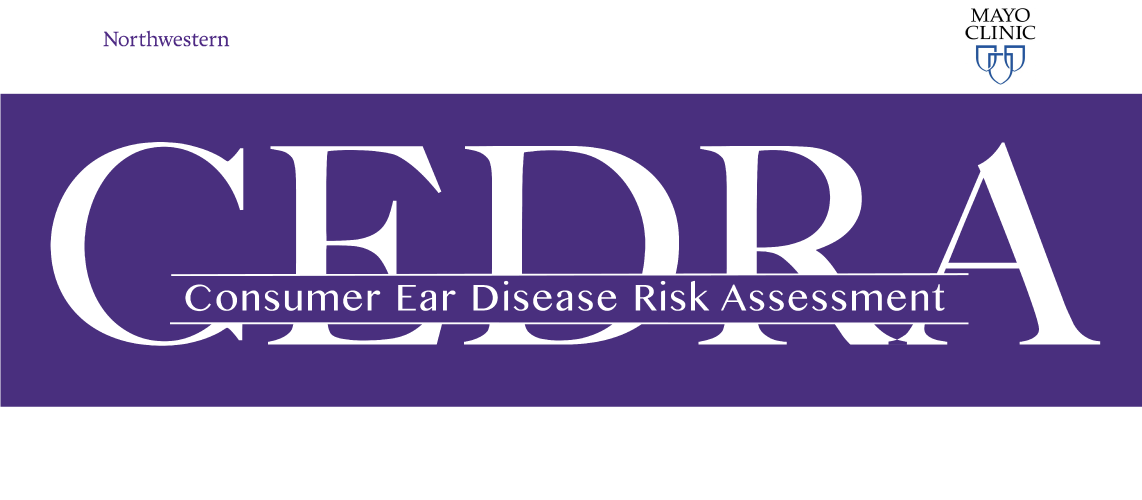CEDRA (the Consumer Ear Disease Risk Assessment tool) was developed and validated by an interdisciplinary and inter-institutional team of researchers and clinicians. A summary paper has been published by Ear and Hearing:
- Klyn, N. A. M., Kleindienst Robler, S., Bogle, J., Alfakir, R., Nielsen, D. W., Griffith, J. W., … Zapala, D. A. (2019). CEDRA: A Tool to Help Consumers Assess Risk for Ear Disease. Ear and Hearing, Publish Ahead of Print. https://doi.org/10.1097/AUD.0000000000000731
The initial stage of research was the identification and prioritization of diseases and conditions that may affect hearing:
- Kleindienst, S. J., Dhar, S., Nielsen, D. W., Griffith, J. W., Lundy, L. B., Driscoll, C., … Zapala, D. A. (2016). Identifying and Prioritizing Diseases Important for Detection in Adult Hearing Health Care. American Journal of Audiology, 25(3), 224. https://doi.org/10.1044/2016_AJA-15-0079
This resulted in a prioritized list of 104 ear-related diseases that were targeted during the development of the CEDRA questionnaire. Questions were initially developed by expert clinicians, then refined over a series of interviews with patient-participants.
The refined version of CEDRA was then tested with 307 participants from the Mayo Clinic, Florida. 231 of those participants had one or more of the targeted diseases, 76 had age- or noise-related hearing trouble. Statistical analyses indicated that scoring 15 of the CEDRA questions would yield a good estimate of the disease risk of the participants, with overall accuracy at 85%.
- Kleindienst, S. J., Zapala, D. A., Nielsen, D. W., Griffith, J. W., Rishiq, D., Lundy, L., & Dhar, S. (2017). Development and Initial Validation of a Consumer Questionnaire to Predict the Presence of Ear Disease. JAMA Otolaryngology–Head & Neck Surgery. https://doi.org/10.1001/jamaoto.2017.1175
The research team is currently testing CEDRA in a larger group of patients at sites across the United States.
